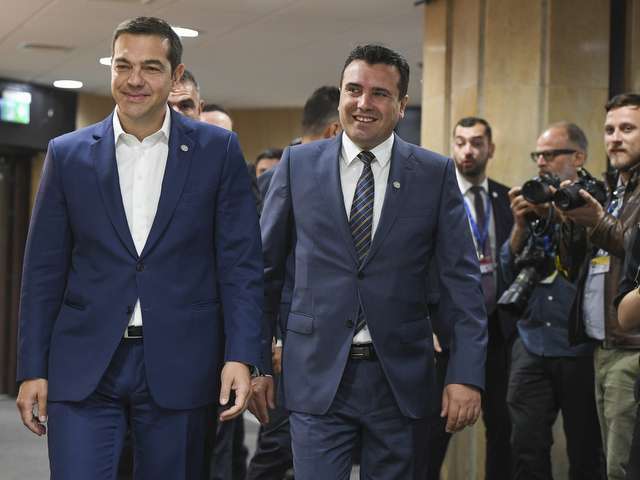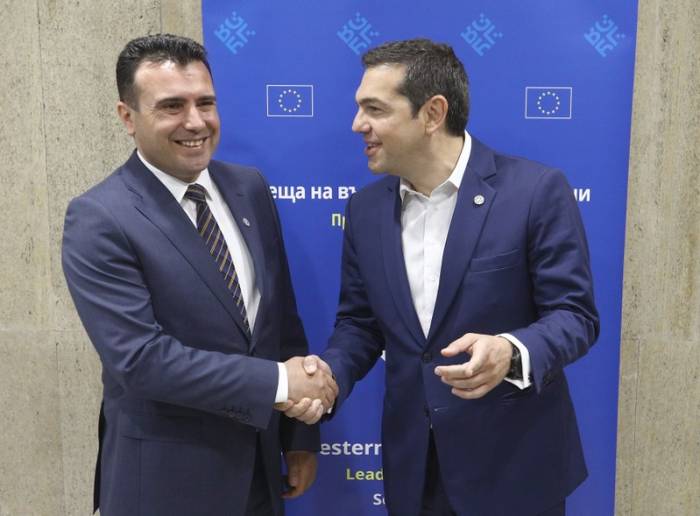Athens contends that the name Macedonia represents a territorial claim over Greece’s northern province, also named Macedonia. The dispute has kept Macedonia — whose U.N.-recognized name is the Former Yugoslav Republic of Macedonia — from joining NATO and the EU, organizations where Greece has veto power over admissions, like all members.
Macedonian Prime Minister Zoran Zaev reiterated during a press conference his pledge to hold a referendum on the new name in the fall.
Greek Prime Minister Alexis Tsipras said that all of Greece’s concerns had been addressed with the new name, according to the Associated Press.
But Greek Defense Minister Panos Kammenos, whose right-wing Independent Greeks party is Tsipras’ junior coalition partner, said he would reject the name agreement in a parliamentary vote.

EU and NATO officials, meanwhile, welcomed the announcement from Tsipras and Zaev, calling it a “historic” deal.
“We wholeheartedly congratulate Prime Ministers Alexis Tsipras and Zoran Zaev for their determination and leadership in reaching this historic agreement,” said EU foreign affairs chief Federica Mogherini and European Commissioner for Enlargement Negotiations Johannes Hahn in a joint statement.
They also urged the Council to endorse opening EU accession talks with Macedonia, which the European Commission recommended in April.
“This historic agreement is testament to many years of patient diplomacy, and to the willingness of these two leaders to solve a dispute which has affected the region for too long,” said NATO Secretary General Jens Stoltenberg in a statement.
“I now call on both countries to finalise the agreement reached by the two leaders. This will set Skopje on its path to NATO membership. And it will help to consolidate peace and stability across the wider Western Balkans.”
















































